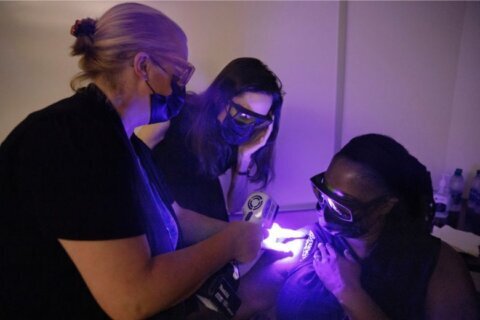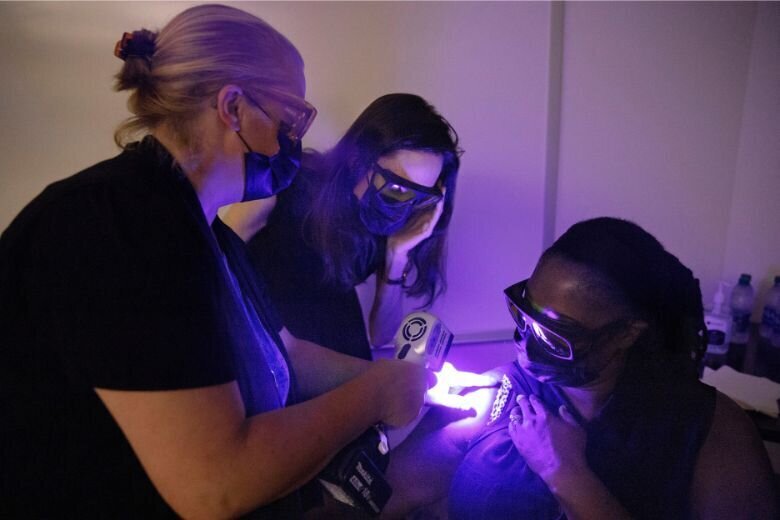
Researchers at George Mason University in Virginia received a $4.85 million gift to help continue their research in detecting injuries caused by domestic violence, which will now include the use of artificial intelligence.
The new tool will work in conjunction with technology — started by professor Katherine Scafide in the School of Nursing — which uses alternative light sources to find bruises a nurse or doctor may not see or assess accurately for people of different skin tones and races.
The anonymous donation will allow researchers to build a new AI software that can help identify bruising injuries with a database of different skin colors. The tool needs a large enough database that can identify all types of skin tones “accurately and equitably,” Associate Professor David Lattanzi told WTOP.
“It leads to better outcomes and measurably better outcomes for those victims downstream in terms of their care and in terms of their outcomes in the criminal justice system,” Lattanzi said.
According to a statement from the university, one in three women worldwide experience some form of violence, and in the United States, over 10 million women and men deal with some kind of interpersonal violence each year. With both projects working together, researchers hope the new tool can help identify those injured in domestic violence cases.
“Expanding the data set, the way we’re able to now, is going to allow us to build an AI that is more equitable and is more able to apply to a broader cross section of the population,” Lattanzi said.
There have been concerns over the use of AI, its quick implementation and its reliability. Others are concerned about how the technology may lead to biases and discrimination toward one segment of the population.
Professor Janusz Wojtusiak told WTOP that’s why the donation is so important. It’s given researchers enough money to load up their prototype with as much imaging data possible. It also gives them time to test it out and eliminate any biases found in their research. He added testing AI is an ongoing process in the medical field, but the goal is not to misuse the technology.
“The problem is so complicated that we really need to push boundaries of the current science, in image recognition, in AI, in data integration and lots of other things,” Wojtusiak said. “Those things actually don’t exist, we really need to build something new in order to solve the problem.”
Wojtusiak said the technology will be primarily used by clinicians, forensic scientists and law enforcement officials. He added AI will be useful to help in cases where other types of support are not available for victims, specifically those living far away from good hospitals with forensic teams lacking more advanced equipment.
Lattanzi said they hope to have a prototype in a year, with the possibility of having the technology available for use in a couple of years. However, Wojtusiak stressed the importance of getting feedback during trials to make sure the AI is functioning properly and working to help “actual victims of violence.”
“This gift will allow us to expand our data collection to really, truly build equitable and powerful models that help other people,” Lattanzi said. “But it will also help us develop and translate this technology into a package that is useful to others.”
The funding is the largest gift to support research done at the university’s College of Public Health, Dean Melissa Perry said in a statement.
Get breaking news and daily headlines delivered to your email inbox by signing up here.
© 2024 WTOP. All Rights Reserved. This website is not intended for users located within the European Economic Area.








